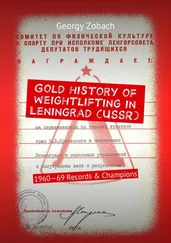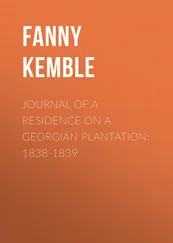Fanny Kemble - Records of a Girlhood
Здесь есть возможность читать онлайн «Fanny Kemble - Records of a Girlhood» — ознакомительный отрывок электронной книги совершенно бесплатно, а после прочтения отрывка купить полную версию. В некоторых случаях можно слушать аудио, скачать через торрент в формате fb2 и присутствует краткое содержание. Жанр: foreign_prose, foreign_antique, на английском языке. Описание произведения, (предисловие) а так же отзывы посетителей доступны на портале библиотеки ЛибКат.
- Название:Records of a Girlhood
- Автор:
- Жанр:
- Год:неизвестен
- ISBN:нет данных
- Рейтинг книги:4 / 5. Голосов: 1
-
Избранное:Добавить в избранное
- Отзывы:
-
Ваша оценка:
- 80
- 1
- 2
- 3
- 4
- 5
Records of a Girlhood: краткое содержание, описание и аннотация
Предлагаем к чтению аннотацию, описание, краткое содержание или предисловие (зависит от того, что написал сам автор книги «Records of a Girlhood»). Если вы не нашли необходимую информацию о книге — напишите в комментариях, мы постараемся отыскать её.
Records of a Girlhood — читать онлайн ознакомительный отрывок
Ниже представлен текст книги, разбитый по страницам. Система сохранения места последней прочитанной страницы, позволяет с удобством читать онлайн бесплатно книгу «Records of a Girlhood», без необходимости каждый раз заново искать на чём Вы остановились. Поставьте закладку, и сможете в любой момент перейти на страницу, на которой закончили чтение.
Интервал:
Закладка:
Mr. Young's own theatrical career was a sort of curious contradiction between his physical and mental endowments. His very handsome and regular features of the Roman cast, and deep, melodious voice, were undoubtedly fine natural requisites for a tragic actor, and he succeeded my uncle in all his principal parts, if not with any thing like equal genius, with a dignity and decorum that were always highly acceptable. He had, however, no tragic mental element whatever with these very decided external qualifications for tragedy; but a perception of and passion for humor, which he indulged in private constantly, in the most entertaining and surprising manner. Ludicrous stories; personal mimicry; the most admirable imitation of national accent—Scotch, Irish, and French (he spoke the latter language to perfection, and Italian very well); a power of grimace that equaled Grimaldi, and the most irresistibly comical way of resuming, in the midst of the broadest buffoonery, the stately dignity of his own natural countenance, voice, and manner.
He was a cultivated musician, and sang French and Italian with taste and expression, and English ballads with a pathos and feeling only inferior to that of Moore and Mrs. Arkwright, with both which great masters of musical declamation he was on terms of friendly intimacy. Mr. Young was a universal favorite in the best London society, and an eagerly sought guest in pleasant country-houses, where his zeal for country sports, his knowledge of and fondness for horses, his capital equestrianism, and inexhaustible fund of humor, made him as popular with the men as his sweet, genial temper, good breeding, musical accomplishments, and infinite drollery did with the women.
Mr. Young once told Lord Dacre that he made about four thousand pounds sterling per annum by his profession; and as he was prudent and moderate in his mode of life, and, though elegant, not extravagant in his tastes, he had realized a handsome fortune when he left the stage.
Mr. Young passed the last years of his life at Brighton, and I never visited that place without going to see him, confined as he latterly was to his sofa with a complication of painful diseases and the weight of more than seventy years. The last time I saw him in his drawing-room he made me sit on a little stool by his sofa—it was not long after my father, his life-long friend and contemporary's death—and he kept stroking my hair, and saying to me, "You look so like a child—a good child." I saw him but once more after this; he was then confined to his bed. It was on Sunday; he lay propped with pillows in an ample flannel dressing-gown, with a dark-blue velvet skull-cap on his head, and I thought I had never seen his face look more strikingly noble and handsome; he was reading the church service and his Bible, and kept me by him for some time. I never saw him again.
As a proof of the little poetical imagination which Mr. Young brought to some of his tragic performances, I remember his saying of his dress in Cardinal Wolsey, "Well, I never could associate any ideas of grandeur with this old woman's red petticoat." It would be difficult to say what his best performances were, for he had never either fire, passion, or tenderness; but never wanted propriety, dignity, and a certain stately grace. Sir Pertinax McSycophant and Iago were the best things I ever saw him act, probably because the sardonic element in both of them gave partial scope to his humorous vein.
Not long after this we moved to another residence, still in the same neighborhood, but near the churchyard of Paddington church, which was a thoroughfare of gravel walks, cutting in various directions the green turf, where the flat tombstones formed frequent "play-tables" for us; upon these our nursery-maid, apparently not given to melancholy meditations among the tombs, used to allow us to manufacture whole delightful dinner sets of clay plates and dishes (I think I could make such now), out of which we used to have feasts, as we called them, of morsels of cake and fruit.
At this time I was about five years old, and it was determined that I should be sent to the care of my father's sister, Mrs. Twiss, who kept a school at Bath, and who was my godmother. On the occasion of my setting forth on my travels, my brother John presented me with a whole collection of children's books, which he had read and carefully preserved, and now commended to my use. There were at least a round dozen, and, having finished reading them, it occurred to me that to make a bonfire of them would be an additional pleasure to be derived from them; and so I added to the intellectual recreation they afforded me the more sensational excitement of what I called "a blaze;" a proceeding of which the dangerous sinfulness was severely demonstrated to me by my new care-takers.
Camden Place, Bath, was one of the lofty terraces built on the charming slopes that surround the site of the Aquæ Solis of the Romans, and here my aunt Twiss kept a girls' school, which participated in the favor which every thing belonging to, or even remotely associated with, Mrs. Siddons received from the public. It was a decidedly "fashionable establishment for the education of young ladies," managed by my aunt, her husband, and her three daughters. Mrs. Twiss was, like every member of my father's family, at one time on the stage, but left it very soon, to marry the grim-visaged, gaunt-figured, kind-hearted gentleman and profound scholar whose name she at this time bore, and who, I have heard it said, once nourished a hopeless passion for Mrs. Siddons. Mrs. Twiss bore a soft and mitigated likeness to her celebrated sister; she had great sweetness of voice and countenance, and a graceful, refined, feminine manner, that gave her great advantages in her intercourse with and influence over the young women whose training she undertook. Mr. Twiss was a very learned man, whose literary labors were, I believe, various, but whose "Concordance of Shakespeare" is the only one with which I am acquainted. He devoted himself, with extreme assiduity, to the education of his daughters, giving them the unusual advantage of a thorough classic training, and making of two of them learned women in the more restricted, as well as the more general, sense of the term. These ladies were what so few of their sex ever are, really well informed ; they knew much, and they knew it all thoroughly; they were excellent Latin scholars and mathematicians, had read immensely and at the same time systematically, had prodigious memories stored with various and well-classed knowledge, and, above all, were mistresses of the English language, and spoke and wrote it with perfect purity—an accomplishment out of fashion now, it appears to me, but of the advantage of which I retain a delightful impression in my memory of subsequent intercourse with those excellent and capitally educated women. My relations with them, all but totally interrupted for upward of thirty years, were renewed late in the middle of my life and toward the end of theirs, when I visited them repeatedly at their pretty rural dwelling near Hereford, where they enjoyed in tranquil repose the easy independence they had earned by honorable toil. There, the lovely garden, every flower of which looked fit to take the first prize at a horticultural show, the incomparable white strawberries, famous throughout the neighborhood, and a magnificent Angola cat, were the delights of my out-of-door life; and perfect kindness and various conversation, fed by an inexhaustible fund of anecdote, an immense knowledge of books, and a long and interesting acquaintance with society, made the indoor hours passed with these quiet old lady governesses some of the most delightful I have ever known. The two younger sisters died first; the eldest, surviving them, felt the sad solitude of their once pleasant home at "The Laurels" intolerable, and removed her residence to Brighton, where, till the period of her death, I used to go and stay with her, and found her to the last one of the most agreeable companions I have ever known.
Читать дальшеИнтервал:
Закладка:
Похожие книги на «Records of a Girlhood»
Представляем Вашему вниманию похожие книги на «Records of a Girlhood» списком для выбора. Мы отобрали схожую по названию и смыслу литературу в надежде предоставить читателям больше вариантов отыскать новые, интересные, ещё непрочитанные произведения.
Обсуждение, отзывы о книге «Records of a Girlhood» и просто собственные мнения читателей. Оставьте ваши комментарии, напишите, что Вы думаете о произведении, его смысле или главных героях. Укажите что конкретно понравилось, а что нет, и почему Вы так считаете.












